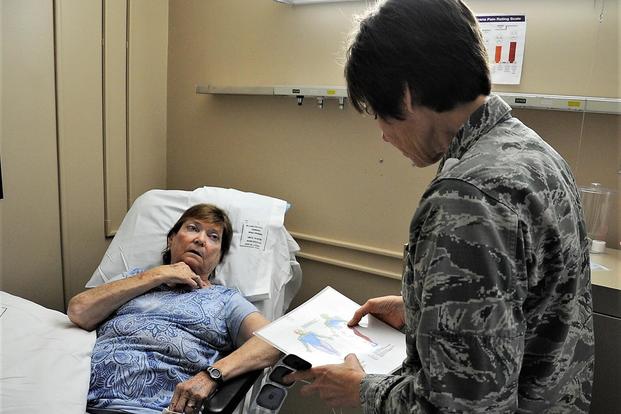In addition to including the largest proposed pay raise for active-duty troops in 11 years -- 3.1 percent -- President Donald Trump's fiscal 2020 Defense Department budget contains no increases in health care fees for troops, retirees and family members.
In the past several years, Tricare beneficiaries have seen significant increases to their health programs, including co-pay increases for beneficiaries who use Tricare Select and retirees on Tricare Prime, as well as pharmacy co-payments across the board.
But this year's budget proposal contains no additional health care fee increases for users of Tricare Prime, Tricare Select and Tricare for Life, meaning that if the budget passes as written and Congress does not include additional fees, beneficiaries can expect their health care costs to be stable next year.
"Due to the substantial reforms to the health benefit enacted in fiscal 2017 and fiscal 2018 and the slowing growth of the unified medical budget, the Department is not pursuing any further cost share reforms in fiscal 2020," the budget documents note.
Related content:
- Navy Wants 5K More Sailors and Billions for New Ships, Will Retire a Carrier Early
- Air Force Asks for 4,400 More Airmen, New F-15EX Fighter in Budget Request
- Army Slashes Old Programs to Fund New Tech in 2020 Budget Request
- War Funding 'Gimmick' in Defense Budget Request Sets Up Congressional Battle
- It's Official: 2020 Budget Proposal Has Largest Troop Pay Raise in a Decade
Each year, the Congressional Budget Office (CBO) drafts a report that includes options for reducing the federal budget deficit, which last year totaled $779 billion. In "Options for Reducing the Deficit: 2019 to 2028,” the CBO noted that requiring retirees on Tricare for Life to pay annual fees ranging from $485 for an individual and $970 for a family would save the federal government $12 billion.
The CBO also stated that increasing Tricare cost-shares and fees for military retirees still in the workforce could save the government $12.6 billion.
In the end, the administration did not include those options in its budget proposal, although Congress has the final say in determining the exact size and scope of the fiscal 2020 budget.
Tricare cost shares are adjusted slightly each year, but do not require congressional approval.
In addition, premium-based plans such as Tricare Young Adult and Tricare Reserve Select do not fall under the same guidelines as basic Tricare programs, so their premiums remain subject to change.
And annual fees for retirees on Tricare Prime also can increase, as stipulated in previous legislation. Payments are tied to the annual cost-of-living adjustment retirees receive for retirement pay.
Military service organizations praised the personnel initiatives included in the budget when details were released Tuesday. Retired Air Force Lt. Gen. Dana Atkins, president of the Military Officers Association of America, said his organization would work to ensure that items such as the pay raise make it into the final version of the 2020 funding.
"We are encouraged by the president's budget and the expressed commitment to our currently serving members of the uniformed services," Atkins wrote in a statement on Twitter.
-- Patricia Kime can be reached at Patricia.Kime@Military.com. Follow her on Twitter at @patriciakime.














